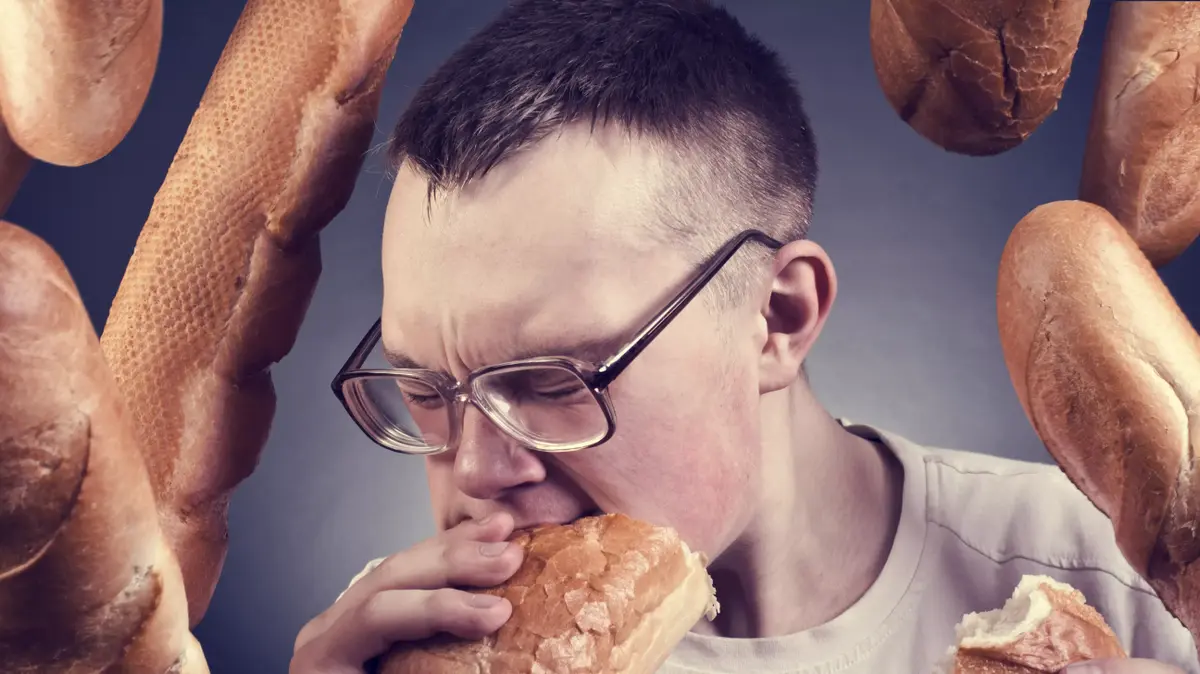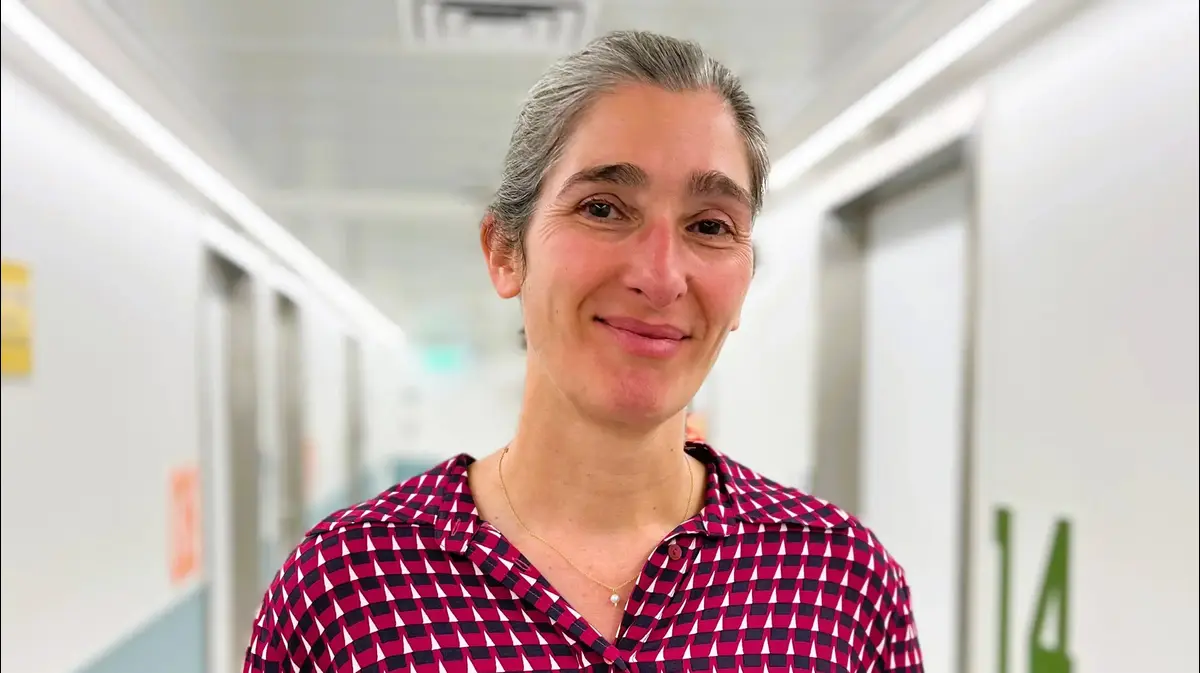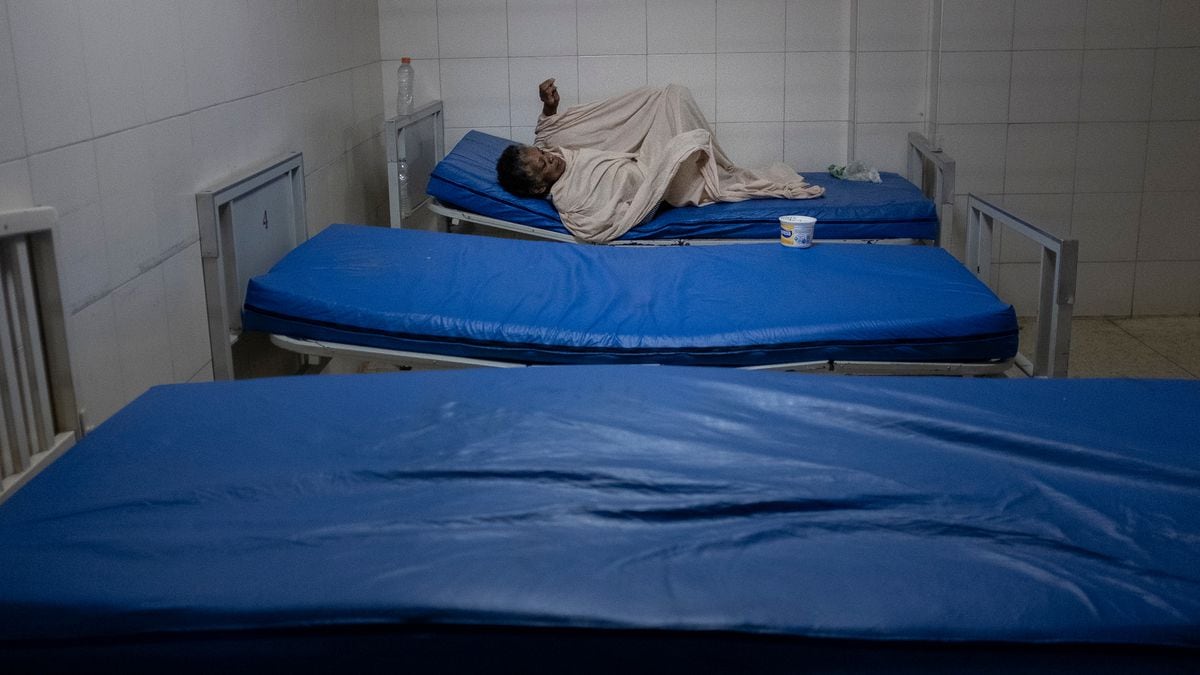This is how the climate crisis affects your children's health
A comprehensive report examining the effects of climate change marks children's health as particularly vulnerable, highlighting the need for global mobilization to deal with the crisis to provide a better future for future generations.
This is how the climate crisis affects your children's health
Photo: Reuters, Edit: Amit Simcha"It doesn't make sense. I'm not supposed to be here. I have to be at school now, across the ocean. And you still come to us, the young ones, to ask for hope. How dare you? You robbed my dreams and my childhood of your empty words." . Climate activist Greta Thunberg's remarks at the New York Climate Change Conference have already become part of the chimney of the global fight against climate change. Thunberg herself. At just 16, she has become a symbol of a new generation born into a world that is already affected by climate change.
More in Walla! NEWS More in Walla! NEWS6 dietary tips to help combat global warming
To the full article"Climate change" has often been seen as a far removed subject from the daily lives of most people, and as such can be reset in the back of the head and hope to pass by itself. But our sense of well-being in the environment we live in, the stability of local communities, health systems and governments - all depend on the effects of climate change. Already, severe storms, flooding and flooding events, extreme heat waves and prolonged droughts, huge fires, infectious diseases are emerging, and there is a danger to the food security of many on Earth.
A recent report in the medical journal The Lancet conducted an extensive review of the effects of climate change on human health. One of the significant findings in the report is that children are far more vulnerable to the effects of climate change that are happening in the present and those expected in the future.
Air pollution, disease and extreme heat
The findings of the report were gathered from 35 leading academic institutions and UN agencies from around the world. In order to produce high-quality and diverse data, cross-border and field collaboration was conducted between climate experts, ecologists, public health experts and physicians, as well as mathematicians, engineers, food and transport experts, Economists and government and social scientists.
More in Walla! NEWS
Climate change is causing more and more women to give birth before their date How does hot weather affect our health? The climate crisis also affects your sleep at night button that can save your life in the event of a promoted content heart eventThe report found that a "business as usual" situation and a non-limitation of greenhouse gas emissions would significantly reduce the overall health picture of the human population, especially among children. The injury to children is likely to be caused by air pollution worsening, as climate change causes severe air quality deterioration in large parts of the world, and an increase in the frequency of a phenomenon called "frozen atmosphere" (which causes airborne particulate matter such as soot, dust, and moisture). And the ozone gas does not dissipate well and thus penetrate high concentrations into the respiratory system. According to the study, by the end of the 21st century this atmospheric phenomenon is expected to prevail in large parts of the world for 40 days a year.
The report also predicts the spread of infectious diseases in new areas, as the combination of heat and humidity is a catalyst for the rapid proliferation of bacteria and also carriers such as mosquitoes, transmitters and viruses of various types (malaria, affinity, dengue fever and more).
Hot flashes cause many deaths, especially in very older adults and infants. Heat wave in Europe (Photo: Reuters)
Heat wave in Europe: heat peaks in Germany, the Netherlands and Belgium; France fear Notre Dame will collapse (Photo: Reuters)
Another phenomenon is extreme heat events like there have been around the world in recent years and especially in June-July 2019 in Europe, so many heat records have broken since the beginning of measurements. Hot flashes cause many deaths especially in populations such as very adults and infants. In addition, undermining food security is expected in light of the growing global population and shrinking territories that allow food to grow due to conditions that would render some of today's agricultural land unworthy of agricultural cultivation. Agriculture is the most sensitive sector to climatic conditions and global climate change produces much warmer and more extreme weather which leads to a change in soil character, resistance to pest and disease varieties and makes it even more difficult to grow food.
Children are more vulnerable than adults
Researchers say children are particularly vulnerable to such conditions because of their physiology: Because in children, the heart beats faster and the respiratory rate is higher than in adults, they absorb more air pollutants in relation to body weight, an effect that is exacerbated by their small size. Also, children are at high risk also because they spend more time in the outdoor environment than adults. Climate change, extreme heat, and air pollution from fossil fuel combustion are threatening children's health from the womb, and from there the damage is only likely to build up and get worse.
According to Prof. Hagai Levin, Head of Health and Environment at the Hebrew University School of Public Health, "The focus on children is an important trend. We know that there are other vulnerable populations in the context of climate change, such as the elderly, but conceptually, in the current way of life we are sacrificing. "The children's lives, not only in the future but also in the present."
The damage starts already in the womb. Undergoing ultrasound (Photo: shutterstock)
Undergoing ultrasound (Photo: ShutterStock)
Levin adds that "our initial development period as humans is critical, and small disruptions, such as exposure to chemicals and pollutants in the air and exposure to high temperatures during pregnancy, can cause various problems and injuries." He also notes that "It is also important to remember that all relationships - the degree of risk varies between different groups in the population, times during pregnancy, males and females and the mother's lifestyle. Therefore, it is difficult for us to measure true impact, but we are constantly encountering evidence that climate change is damaging to health. our".
there is a solution?
According to the report, air pollution from human activities (both internal and external pollution) was responsible for the early death of seven million people worldwide in 2016 alone. In addition to emissions associated with burning fossil fuels, the report notes that future generations will increasingly be exposed to particulate pollution as a result of fires, which occur more frequently as global temperatures rise. The high temperatures dry the vegetation, making it easier to ignite, and smoke emitted from these fires has negative health consequences. As a result of these fires and other extreme climate scenarios, young children also have to deal with mental health problems that they have never had to deal with before, and certainly not with the frequency and intensity they now face.
"Climate change is challenging us and our bodies," Levin concludes. "Some studies have found that embryos exposed during pregnancy to a particular climate experience difficulty in giving birth to a different climate, so the body is not well adapted to change." He adds, "The important point is that the health care system needs to prepare for current and future changes, to investigate and monitor the effects of climate change, something we are not dealing with enough today. It is important to understand that thinking and action on this issue must be not only multidisciplinary, To address other areas such as geography, sociology, management and education. In addition, the collaborations can open up for us profitable opportunities, such as technological developments to deal with climate change. "
The article was prepared by Angle - Science and Environment News Agency









